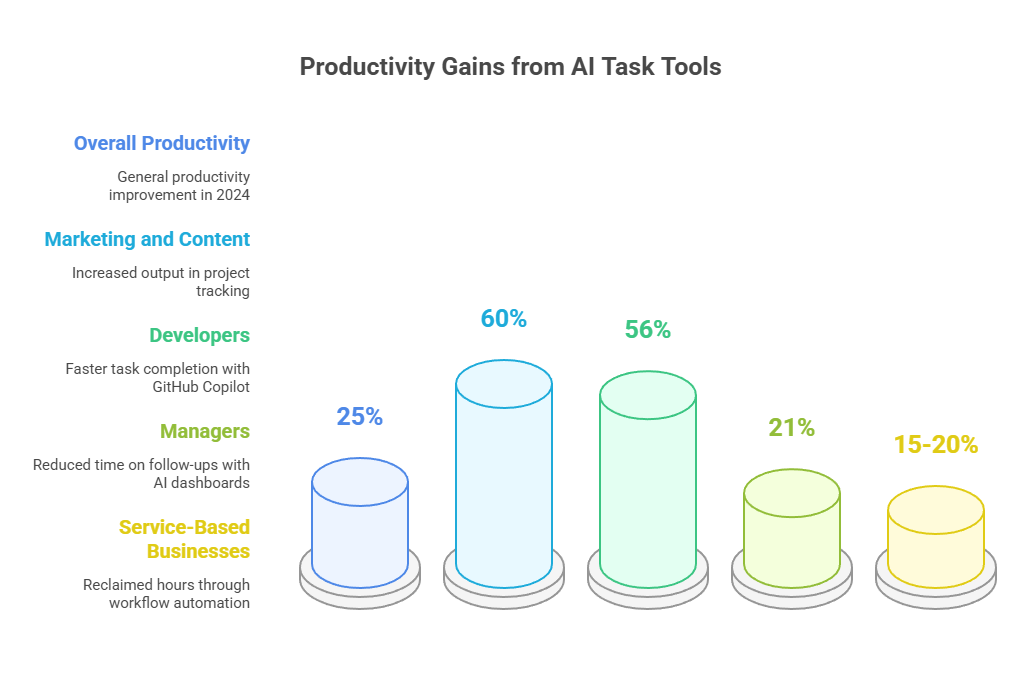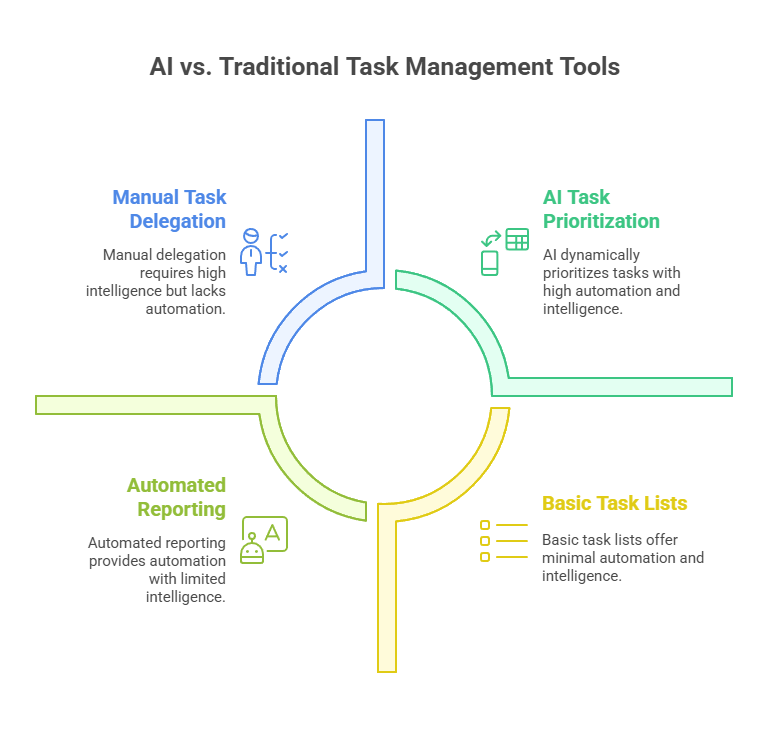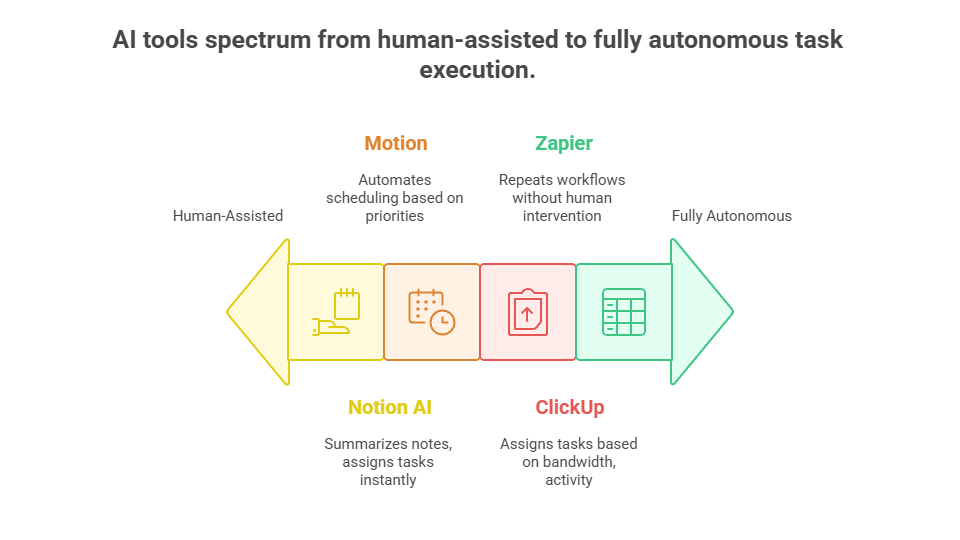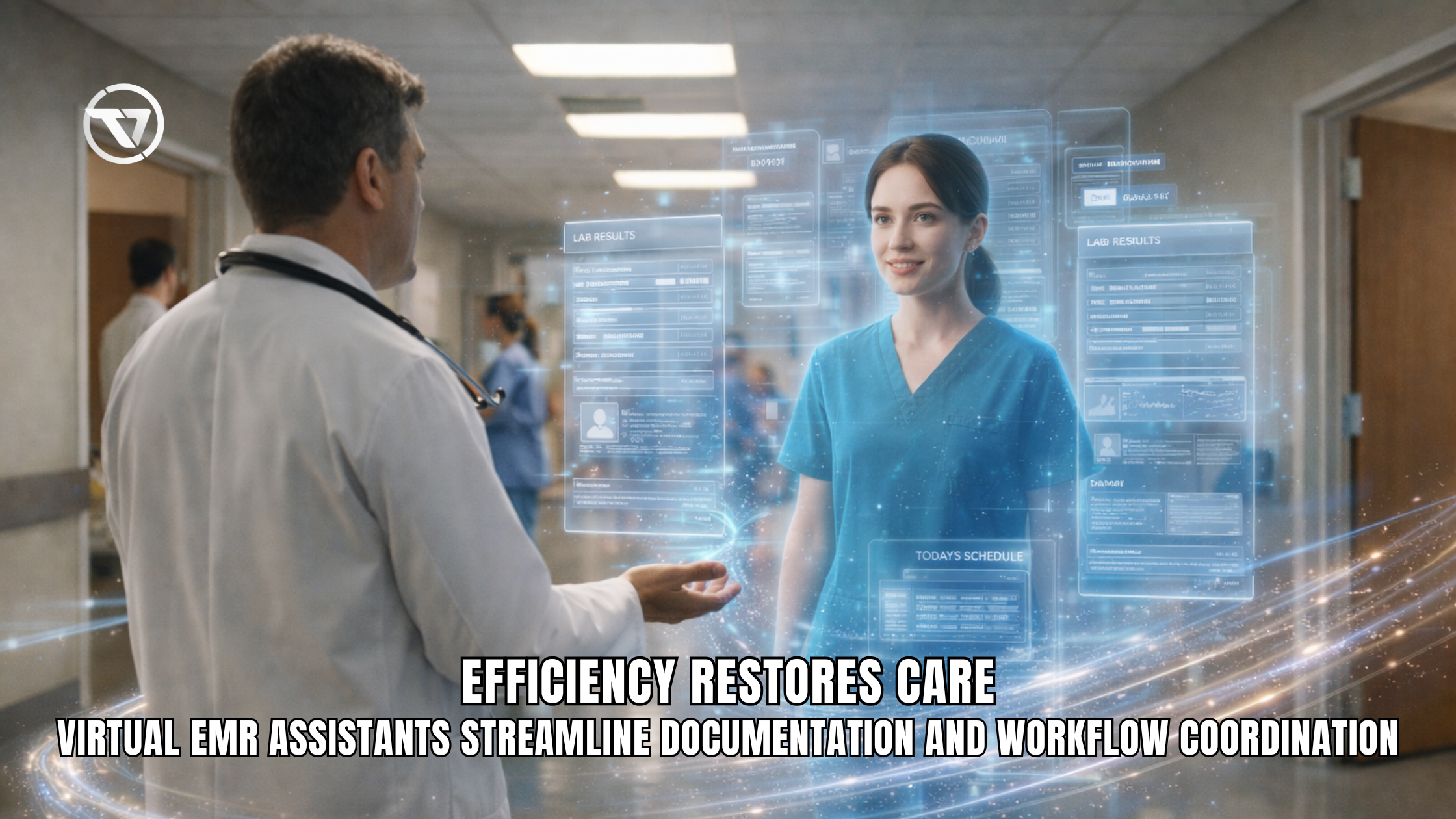
AI for Task Management: How Smart Automation is Reshaping Productivity
In today’s fast-paced digital economy, task overload is no longer just an individual problem—it’s a systemic challenge for businesses across the United States and the United Kingdom. Between administrative work, collaboration delays, and fragmented workflows, companies are losing countless hours to inefficiencies. Enter AI for task management—a powerful shift that is automating routine work, optimizing schedules, and enabling real-time prioritization like never before.
The Rise of AI-Driven Task Management Tools

The global momentum around AI-powered productivity software is staggering. The AI task manager app market was valued at USD 2.69 billion in 2023 and is expected to surge to USD 10 billion by 2032, with a compound annual growth rate (CAGR) of 15.7%. From enterprise project management tools like ClickUp and Asana to smart assistants integrated with Microsoft Copilot and Notion AI, automation is quietly redefining what it means to “stay productive.”
In the US and UK, the adoption rate is even higher in tech-forward sectors like marketing, software, eCommerce, and consultancy. Over 70% of tools launched in 2023 included built-in AI features for predictive planning, automated updates, and smart delegation—features that go far beyond traditional to-do lists.
Project managers report that AI already automates 80% of recurring reporting and streamlines scheduling tasks with 88% accuracy. The business impact? A significantly faster cycle from task assignment to completion—and a notable decline in communication overhead.
Productivity Gains that Resonate Across Teams

It’s no surprise that AI task tools have become essential in hybrid and remote work environments across the UK and US. In 2024, companies that integrated AI-driven scheduling assistants reported a 25% increase in task completion and a 27% improvement in productivity, according to Business Wire.
But the real value lies in time savings across roles:
-
Google estimates that AI tools can save employees 122 hours per year—that’s over 3 full work weeks annually.
-
Marketing and content teams have reported up to a 60% increase in output when using AI for project tracking and idea prioritization.
-
Developers using GitHub Copilot complete tasks 56% faster, while managers using AI-powered dashboards spend 21% less time on follow-ups.
For service-based businesses in the UK, such as legal, consulting, and medical firms, automating administrative workflows alone is reclaiming 15–20% of weekly work hours, freeing up time for client-facing priorities.
What Makes AI Better Than Traditional Task Tools?

Traditional tools like Trello, spreadsheets, or Slack-based task lists lack intelligence. They require manual updates, provide no task prioritization logic, and don’t adapt to changing circumstances. AI tools, on the other hand, can:
-
Prioritize tasks dynamically based on urgency, dependencies, and calendar availability.
-
Predict delays and suggest contingencies, using historical and real-time data.
-
Automate delegation by assigning tasks based on availability and workload.
-
Generate summaries and reports without manual input.
These capabilities aren’t just “nice-to-haves.” In high-stakes environments—like logistics, financial services, and agency work—predictive task management is reducing project failure rates by up to 45%, according to reports.
Business Impact in the US and UK Markets

For US and UK-based SMEs, AI in task management isn’t just about boosting productivity—it’s about staying competitive in a saturated digital ecosystem. 93% of companies investing in AI for project workflows report positive ROI, as per reports.
This shift is particularly useful for:
-
Startups and solopreneurs who use AI to automate marketing schedules, client onboarding, and invoice follow-ups.
-
Agencies that streamline multi-client workflows using AI scheduling bots.
-
Remote teams, where time zones and asynchronous updates create coordination gaps, now bridged by AI-powered reminders and nudges.
UK-based companies have also begun leveraging multilingual AI assistants for international collaboration, especially across European and American teams, minimizing translation lag and improving deadline adherence.
AI in Action: Use Cases That Matter

Here’s how AI task tools are transforming real business scenarios:
1. Real-time Collaboration:
Tools like Notion AI and Taskade use generative AI to auto-summarize meeting notes and assign follow-up tasks instantly.
2. Time-Blocking Optimization:
Motion and Reclaim AI automate calendar scheduling based on priority levels, energy peaks, and deadlines.
3. Smart Delegation:
ClickUp’s AI assigns tasks based on bandwidth and recent activity patterns, reducing burnout and boosting accuracy.
4. Recurring Task Automation:
Zapier and Tallyfy use AI triggers to repeat workflows without human intervention—ideal for content publishing, reporting, and customer follow-ups.
These platforms aren’t just passive tools—they become active co-pilots in your workday.
How TaskVirtual Supercharges AI for Task Management
For businesses that want expert support in setting up, managing, and scaling AI-powered task systems, TaskVirtual offers a winning solution for AI Task Management. Here’s how:
1. Expert Consultation on AI Tools
TaskVirtual helps clients in the US and UK implement smart tools like Notion AI, Trello AI, Microsoft 365 Copilot, and others to improve daily workflows. From tool selection to setup, their experts guide every step.
2. Affordable, Scalable Talent
With rates starting at just $3.12/hour to $14.99/hour, TaskVirtual provides highly trained virtual assistants who specialize in AI-enhanced project coordination, calendar syncing, and communication tracking.
3. Proven Results
TaskVirtual boasts 364 positive reviews and an impressive 4.7-star rating on virtual assistant platforms, making it a trusted partner for over 1,000 companies across sectors.
4. Use Cases Tailored for You
Whether you’re an eCommerce seller automating product launches or a consultant organizing CRM follow-ups, TaskVirtual’s assistants integrate AI seamlessly into your existing ecosystem—without disrupting your workflow.
The Future Is Autonomous—and It’s Already Here

According to Gartner, 80% of customer issues will be handled by AI agents by 2029, and task management will be no different. As these tools evolve from being “assistants” to becoming “autonomous co-pilots,” businesses will find new efficiencies in every layer—from micro-tasks to strategic planning.
And while some worry about job replacement, the real story is augmentation. By handling repetitive and cognitive-heavy tasks, AI tools are elevating human teams to focus on creativity, relationship-building, and strategy—areas where machines still fall short.
Final Thoughts
AI for task management isn’t a tech buzzword—it’s a daily advantage that forward-thinking teams in the US and UK are already using. Whether it’s through predictive prioritization, smart collaboration tools, or human-AI coordination powered by virtual assistants like TaskVirtual, the benefits are real, measurable, and rapidly expanding.
Now is the time to evolve your workflow. Automate the grunt work. Focus on what matters. Let AI take care of the rest.






